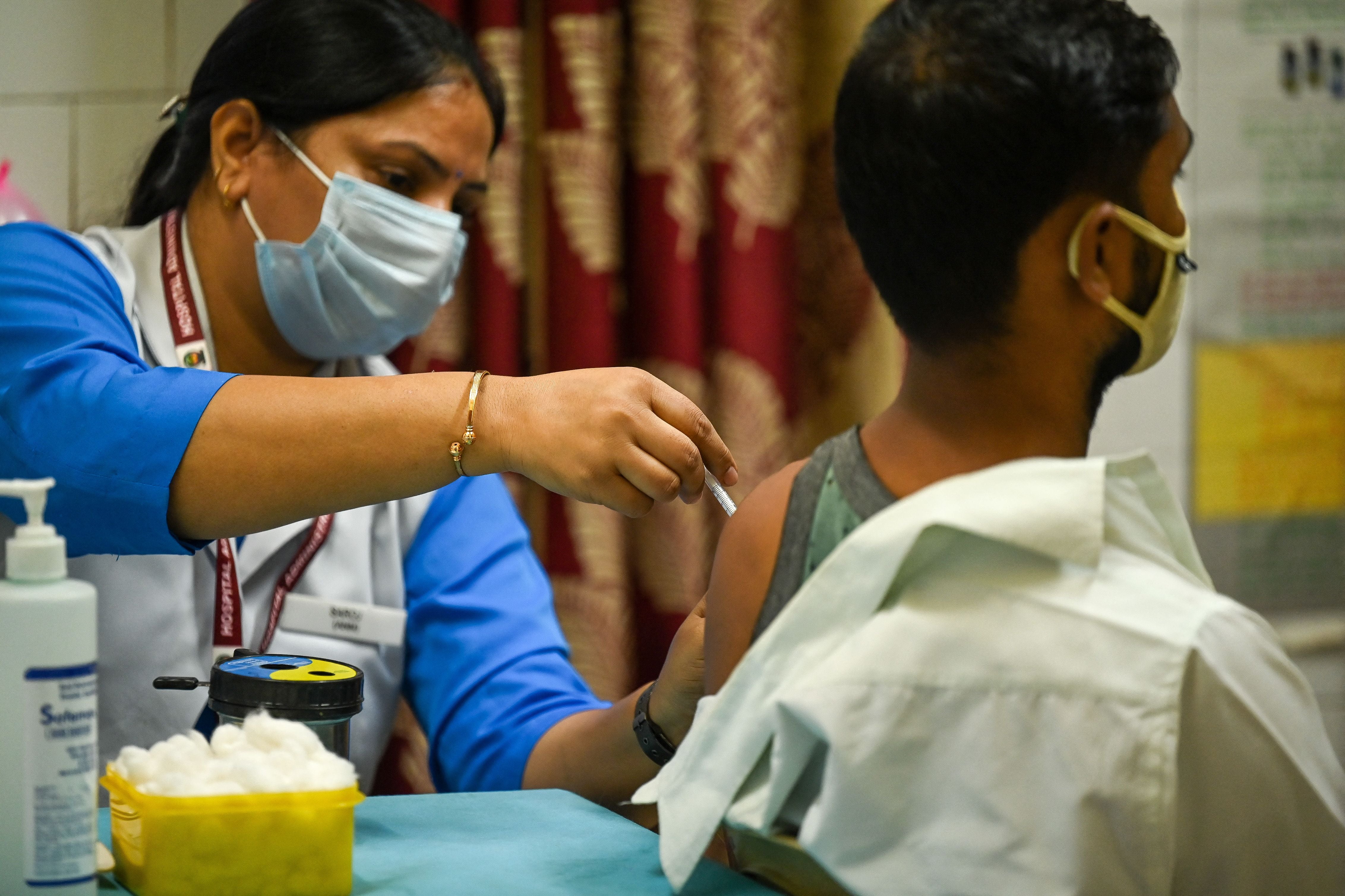No clearance yet for India’s homegrown Covaxin jab, as WHO seeks ‘additional clarifications’
WHO’s technical advisory group will reconvene next week for a final risk-benefit assessment

Your support helps us to tell the story
From reproductive rights to climate change to Big Tech, The Independent is on the ground when the story is developing. Whether it's investigating the financials of Elon Musk's pro-Trump PAC or producing our latest documentary, 'The A Word', which shines a light on the American women fighting for reproductive rights, we know how important it is to parse out the facts from the messaging.
At such a critical moment in US history, we need reporters on the ground. Your donation allows us to keep sending journalists to speak to both sides of the story.
The Independent is trusted by Americans across the entire political spectrum. And unlike many other quality news outlets, we choose not to lock Americans out of our reporting and analysis with paywalls. We believe quality journalism should be available to everyone, paid for by those who can afford it.
Your support makes all the difference.An independent technical advisory committee of the World Health Organisation (WHO) has sought “additional clarifications” from Covaxin makers, lengthening the wait for India’s homegrown jab to get the world body’s clearance.
Covaxin’s Hyderabad-based manufacturer Bharat Biotech has been awaiting a nod for the global health agency since April, when it had submitted an expression of interest for emergency-use listing.
It is India’s first indigenously made Covid-19 vaccine and one of the three jabs currently being used in the country’s inoculation drive. India’s drugs control body had approved the restricted emergency use of Covaxin in January.
As of 27 October, 118 million doses of Covaxin have been administered. This accounts for 11.35 per cent of the total 1.03 billion Covid-19 vaccine doses in India.
Soumya Swaminathan, WHO’s chief scientist, said on Tuesday that the technical advisory group will reconvene next week for a final risk-benefit assessment.
“The WHO independent TAG [technical advisory committee] met today & asked for addl [additional] clarifications from the manufacturer Bharat Biotech to conduct a final EUL [emergency use listing] risk-benefit assessment for global use of Covaxin. It will reconvene for the final assessment on Wednesday, 3 November if data received soon.”
Due to the delay in international approval, millions of Indians who have taken Covaxin are facing travel restrictions from several countries.
This includes people like Sugathan PR, who has been stuck in a village in the southern Indian state of Kerala for the past nine months. He is hopeful that the international approval of Covaxin will allow him to return to his job in Saudi Arabia.
“I cannot continue to remain idle here any further,” the 57-year-old man told Reuters. He had returned to his village in January to be with his family after he missed the funeral of his father last year.
“I had the option of going to Saudi and taking [additional doses of] Covishield after a four-day institutional quarantine, but I was not sure of its implications on my health,” he said, referring to the AstraZeneca vaccine. “If Covaxin approval does not come [soon], I will take the risk of going and taking a Saudi-approved vaccine.”
Acknowledging the inconvenience caused by the delays, the WHO had said on 18 October that while it was aware that many people were waiting for its recommendation for Covaxin to be included in the Covid-19 Emergency Use Listing, the agency “cannot cut corners.”
“Before recommending a product for emergency use, we must evaluate it thoroughly to make sure it is safe and effective,” the agency added.
Without the WHO’s approval, Bharat Biotech will also be unable to export its vaccine.
But the approval of Covaxin within India was itself controversial, as it came before Bharat Biotech had published the results of its own phase three trials. The approval was nonetheless largely celebrated as a success story of indigenous production by Indian prime minister Narendra Modi and his cabinet colleagues.
Join our commenting forum
Join thought-provoking conversations, follow other Independent readers and see their replies
Comments